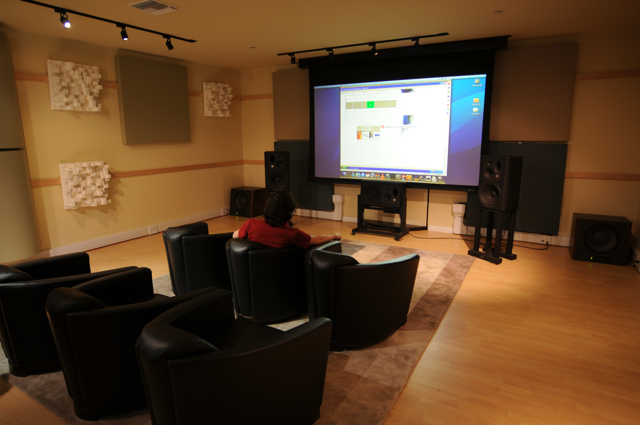The extreme difference between recording techniques and its results is the real proof that there is no real stereo standard. Many methods of recording and mastering, some better than others.There are definitely well documented recording techniques and technology and schools dedicated to this so there are standards. Recording is also an art form so the recording engineer and his experience are another standard.
I highly recommend that you sit in some recording and mastering sessions to understand how amazing and accurate good recordings are. Leaving aside large orchestral that could have some compression or need a large space to scale properly IME many small group music, both studio and venue recordings, live or otherwise can be extremely accurate and lifelike. I truly disagree with your premise that all recordings are false representations, IMO often it's a limitation of ones ability to reproduce the sound accurately and yes, naturally.
Never said that "all recordings are false representations". Said they are illusionary representations.
It's possible that we have a very different definition of "audiophile" because I never heard of being an audiophile as a human condition! If that's true then anyone with any interest educating themselves in that field is suffering from a human condition. I think it's actually the opposite, the attraction to music and sound is very organic and natural for most people I've come across and by extension getting interested in sound system.Why would preferences be taught, we're not robots? IME you develop preferences with experience and until fully exposed most people are unaware of their true preferences until exposed to it.
We have to train because stereo is not a natural process and has spatial limitations. In real life sound does not come from two points, with the help of boundaries reflection.
Please define your classification untrained and trained listeners, what are they trained in and trained by whom. I'm also wondering about who's included in the group when you mention "our preferences", with all the disagreement you mention we can't be all part of the same "preference" group.
We can train ourselves - see for example how Peter describes his real music experiences. We can have mentors that tell us what to listen. And yes, for completness I could have written our different preferences, it was evident for me.
Stereo is a term but a stereo system definitely creates a "sound field", not sure what's a soundfield!
https://www.merriam-webster.com/dictionary/sound field
Definition of sound field
: a region in a material medium in which sound waves are being propagated
I do not use Webster (or literature dictionaries , BTW) to define technical terms. As I have explained before the sound field is an intensity and a vector, not the region, you missed the real point. Anyway thanks for checking my typos.
I am almost sure that we will interpret the same way, the book is extremely technical and factual. We will probably disagree a lot on many aspects, F. Toole warns us in in the introduction. We have more people referring to aspects of the book in WBF and we had very interesting posts on it.Toole and Olive had their own definition of trained and untrained which doesn't jive everyone, I doubt there's a general acceptance of their definitions. Telling people what to listen for in their experiments to guarantee an outcome doesn't make them trained listeners.
There's always the question of your interpretation of Toole's book and his bibliography. Do you believe that between the 3 of us, you, Peter and I interpret it the same?
BTW, Olive training is very specific and different from audiophile training, please do not mix. Toole writtings are not Olive writiings.
Reproduction of a stereo recording has a sound field by any related definition of the word!
https://www.acoustic-glossary.co.uk/sound-fields.htm
The first flaw in your statement is the assumption an "audiophile" is trained. Second, if so that training has intrinsic value for the individual to come up with educated preferences. I have a problem with the concept of trained and untrained, it's derogatory and meaningless.
Sorry, audio scholars use the word all the time and no one consider it derogatory and meaningless. Anyway this is an hobby ...
Well, it seems I became a "natural" keeper of his amplifiers!Vladimir Lamm made me "natural" believer!
david







